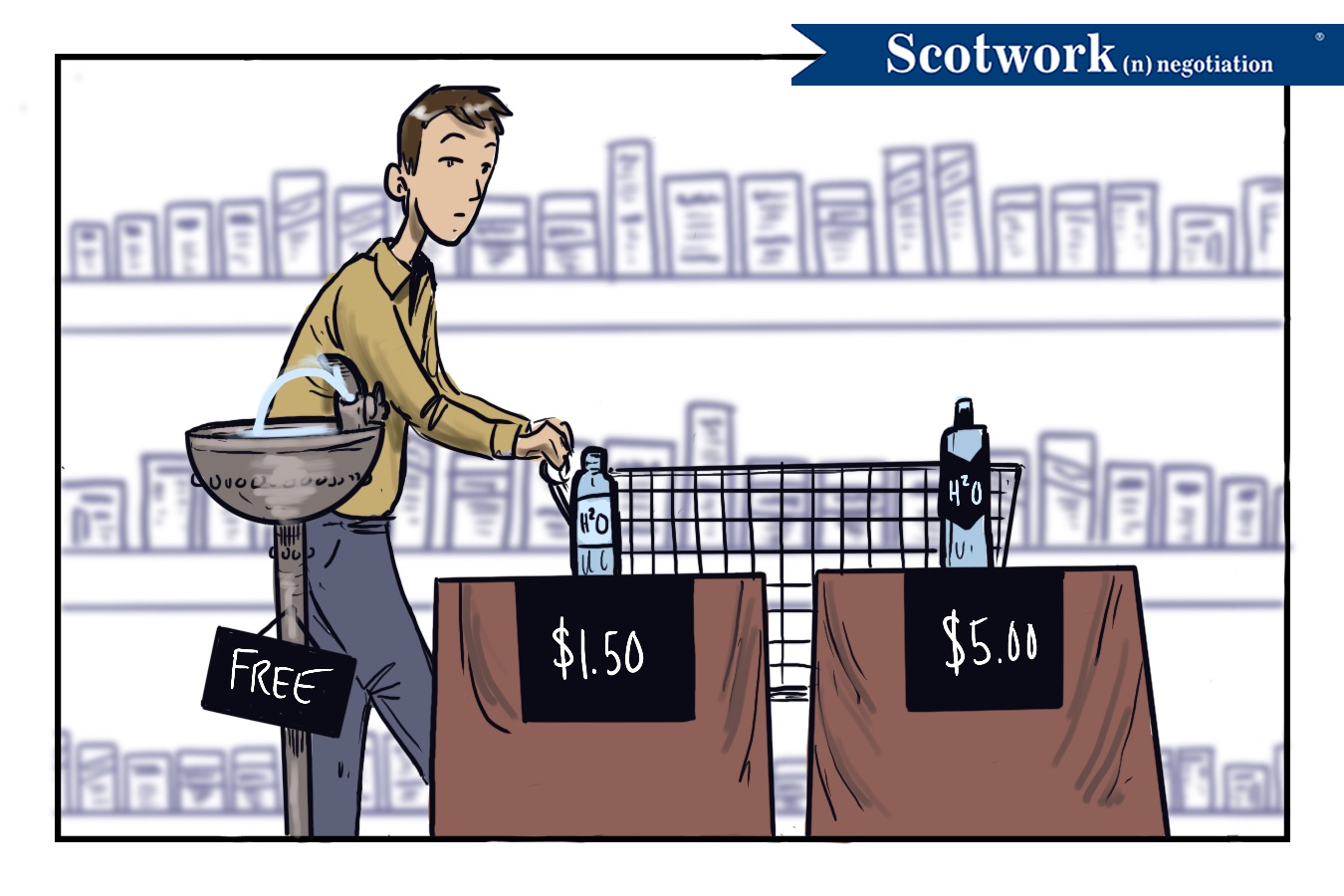In a world where we have access to almost limitless information, we feel like we can be experts in any field. That same access also makes it easy for buyers to strip away the uniqueness and value of sellers’ products and services, relegating them to nothing more than commodities. If this is how it really is, then sellers beware — differentiate, create value, or suffer commoditization. However, what happens when this is not how it really is — when there actually is value and specialization that’s not readily ascertainable, yet a buyer attempts to commoditize the purchase? The consequences for both buyer and seller can be devastating.
I want to be very clear about something: If you don’t have a unique differentiator, and if there are many other competitors in the marketplace that do what you do, then you’re at risk of being commoditized. You can’t blame a buyer for pointing that out to you! If your competitive differentiator is price — i.e., you’re the low-cost leader — then don’t blame the buyer for treating you like a commodity! After all, commodities are all about price.
For sellers, the best thing you can do to stay out of a commodity or price-only conversation is to demonstrate that there’s something more to talk about than price. If you act like a commodity, you’ll be treated like a commodity. Be ready to discuss your value proposition and key differentiators in a manner that resonates with the buyer. This will require a good needs analysis so that you can grasp the issues and problems. Then help the buyer to understand how you pull together quotes and provide them with what they need. Non-commodity players appreciate the needs of their buyers and provide solutions to solve those needs.
And, yes, almost all buyers will ask about price — and most buyers want a lower price. So, don’t be surprised when the subject comes up! Instead, prepare for it. Know how you’re going to present price, discuss price, and negotiate price before you approach the topic. If you don’t have a plan for this, don’t worry, the buyer does — and you may not like it.
Enough with sellers. Let’s talk about buyers and the dangers of buyers commoditizing a product or service that shouldn’t be commoditized. The biggest danger is risk. When we look to commoditize a product or service, it means we focus on price almost at the exclusion of feature set or specifications. Assuming that a buyer can successfully ensure an “apples to apples” comparison, then price is a logical thing to focus on. But it’s in getting to the comparison that buyers often take shortcuts and falsely create an “apples to apples” comparison.
Our advice to buyers is to first understand if what you’re acquiring can be commoditized. If any of the following conditions exist, you might not be dealing with a commodity:
- It’s difficult to acquire (e.g. there are few players in the space).
- The specifications for your need are not clearly defined.
- There’s a high cost to change suppliers.
- You typically work with only one (or maybe two) suppliers at a time.
If any of the above conditions exist, it may indicate that creating an “apples to apples” comparison will be difficult. In order to make the comparison, you’ll have to oversimplify your specifications. When you do that, you run the risk of acquiring a product or service that doesn’t meet your needs, or you set yourself up for a situation in which you’ll have to spend more in ad hoc fees to your supplier to get the solution that meets your needs. In these circumstances, forgo commoditization strategies and shift to a strategic sourcing model that focuses more on the benefits of the solution than the price of the solution.
Commoditized buying and selling have their place. But issues arise when we try to commodify something that shouldn’t be commodified. For sellers, it means getting devalued and being forced to compromise their solution to meet a price objective. For buyers, it means risking purchasing something that doesn’t meet their needs and potentially having to spend more to get what they actually wanted. All of which can lead to longer negotiations, compromised relationships, and needless wastes of time.
Let Us Help You Fight Commoditization
Regardless of which side of the table you’re negotiating on, don’t allow yourself to commodify something that shouldn’t be commodified. We can help! Drawing on 45 years of real-world negotiating experience, we’ll assist you with getting better deals, saving time, and creating value for all involved — not to mention preserving and even strengthening relationships. Let us partner you with one of our advisers, ensuring that you’ve got the broadest view of your deal.

